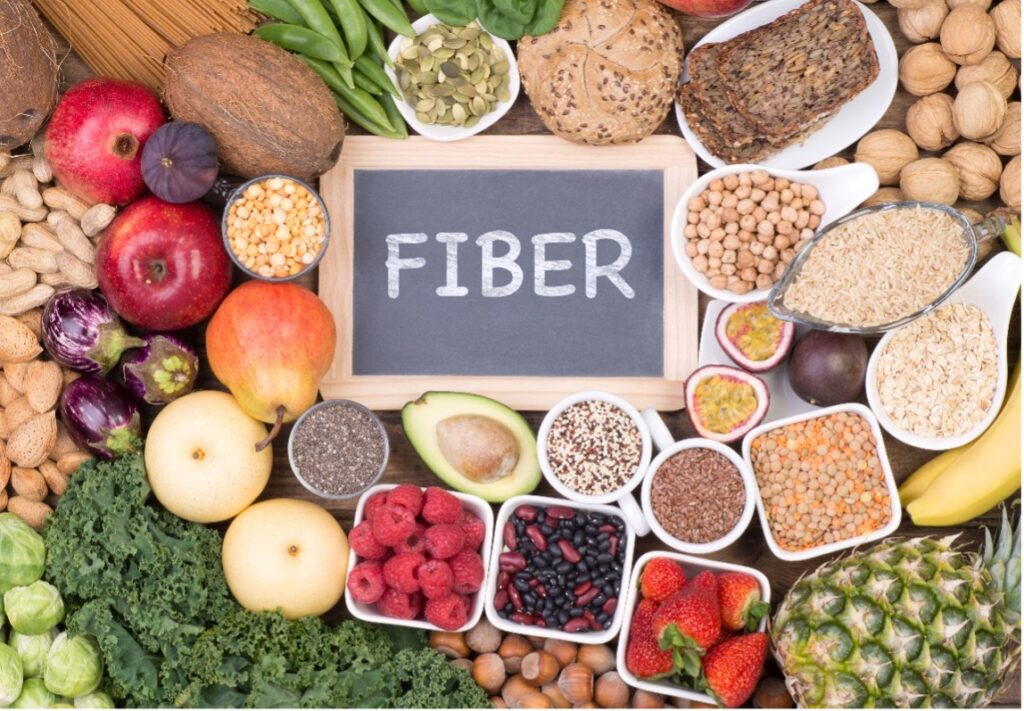The gut is often referred to as the body’s “second brain,” playing a crucial role in not just digestion but also in overall health and well-being. Recent research has highlighted the significant impact of our gut health on immunity, mental health, chronic diseases, and even our mood. This blog from Dr. Zachary Solomon will explore the principles of eating for optimal gut health, highlighting the foods and dietary habits that support a healthy digestive system.
Understanding the Gut Microbiome
- What is the Gut Microbiome?
- A complex community of microorganisms living in our digestive tract, crucial for digestion, nutrient absorption, and immune function.
- Importance of Diversity:
- A diverse gut microbiome is key to good health. It helps in efficient digestion, protects against pathogens, and even influences mood and behavior.

Key Nutrients for Gut Health
- Fiber: Essential for bowel regularity and the growth of beneficial gut bacteria. Found in fruits, vegetables, whole grains, nuts, and seeds.
- Prebiotics: Specific types of fiber that act as food for gut bacteria. Examples include garlic, onions, leeks, asparagus, and bananas.
- Probiotics: Live beneficial bacteria found in fermented foods like yogurt, kefir, sauerkraut, and kombucha.
- Polyphenols: Plant compounds that are digested by gut bacteria, enhancing gut health. Rich sources include berries, nuts, seeds, olive oil, and green tea.
Eating for a Healthy Gut
- Diverse Diet: Eating a wide range of foods encourages a diverse microbiome.
- Fermented Foods: Incorporate foods like yogurt, kefir, and fermented vegetables to boost probiotic intake.
- High-Fiber Foods: Aim for a variety of fiber sources to feed beneficial gut bacteria.
- Stay Hydrated: Drinking plenty of water has a beneficial effect on the mucosal lining of the intestines.
Common Gut Health Challenges
- Irritable Bowel Syndrome (IBS): Managing fiber intake and avoiding trigger foods can help.
- Inflammatory Bowel Disease (IBD): A balanced diet tailored to individual tolerances is key.
- Food Intolerances: Identifying and avoiding specific foods can alleviate symptoms.
Foods to Avoid or Limit
- Highly Processed Foods: These can disrupt gut bacteria balance and cause inflammation.
- Excessive Sugar: Can feed harmful bacteria and yeasts.
- Artificial Sweeteners: Some studies suggest they can negatively impact gut microbiota.
- Alcohol: Moderate consumption, as excessive intake can harm gut lining and liver function.
Practical Tips for Gut-Healthy Eating
Mindful eating is the practice of paying attention to the food you are consuming and taking your time to enjoy it. When we eat slowly and mindfully, we allow our body to properly digest the food and absorb the nutrients. In addition, eating in a calm and relaxed state can help reduce stress, which can further aid digestion.
Maintaining a regular eating schedule is also important for digestive health. Eating at consistent times throughout the day helps regulate the digestive system, as it allows the body to anticipate when it will receive food. This can lead to more efficient digestion and absorption of nutrients.
When it comes to cooking methods, gentle approaches like steaming and stewing can be easier on the gut than harsher methods like frying or grilling. These gentler methods can help preserve the nutrients in food and make them more easily digestible. Additionally, using herbs and spices can add flavor without adding stress to the digestive system.
A healthy gut contributes significantly to overall health and well-being. By incorporating gut-friendly foods into your diet and avoiding those that harm gut health, you can nurture your digestive system and enjoy the wide-reaching benefits it brings to your physical and mental health.
